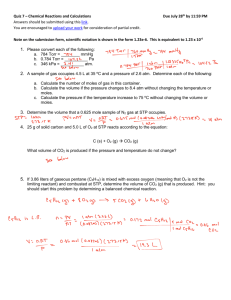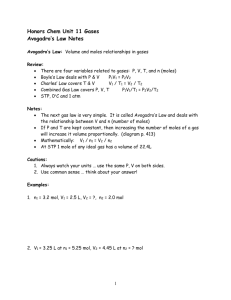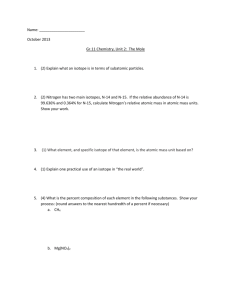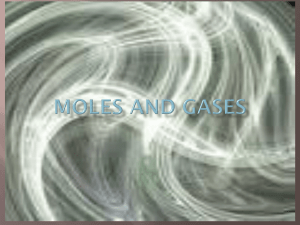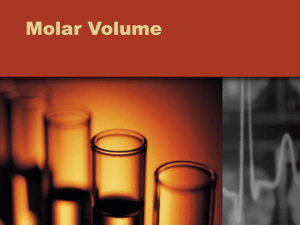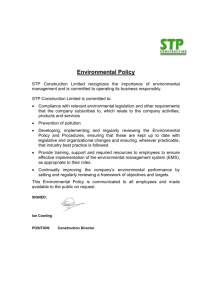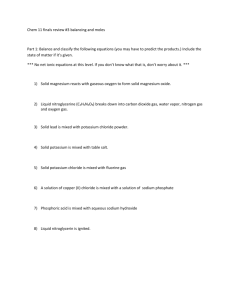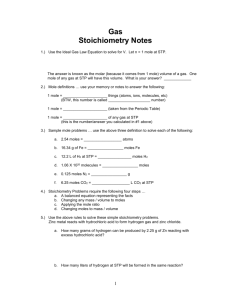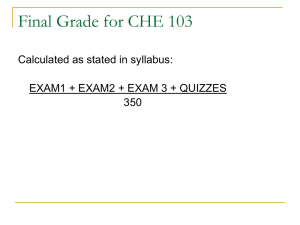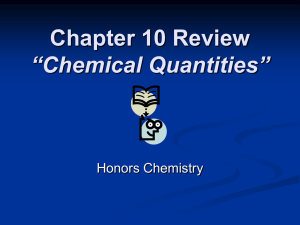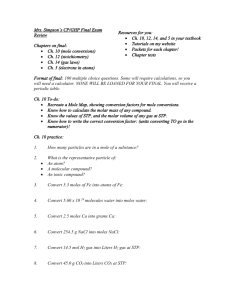Avogadro`s Law Gas Density
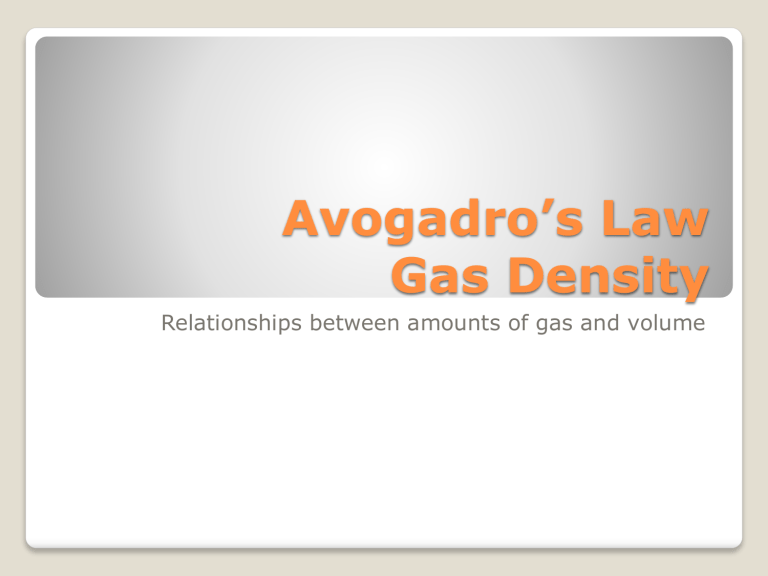
Avogadro’s Law
Gas Density
Relationships between amounts of gas and volume
The volume of a gas at constant temperature and pressure is proportional to the number of moles of gas:
◦ V n
means “proportional to”
◦ V = kn
◦ V
1
/n
1
= V
2
/n
2
Avogadro’s Law
The volume of 1.0 mole of any gas at STP is 22.4 L.
◦ This is called the standard molar volume.
The volume of any gas at STP can be calculated if the number of moles is known:
V = (moles) x 22.4
Standard Molar Volume
1.
2.
3.
4.
One mole of gas at STP has a volume of 22.4 L.
How many moles of gas are present in a 3.00 L container at STP?
If 0.222 mol of a gas has a volume of 5.13 L. How many moles of gas would be present if the volume was 7.47 L (at the same temperature and pressure)?
A 21.0 g lump of dry ice (carbon dioxide) completely sublimes. The resulting CO
2 gas occupies a volume of 11.5 L. What would be the volume of 1.00 mol of CO
22.0 g of CO
2
?
occupies a volume of 11.2 L at STP.
Calculate the volume of 44.0 g of CO
2 at STP.
Avogadro’s Law Problems
Density = mass/volume
Calculate the density of CH
4
◦ Assume 1 mole of CH
4
◦ V= 22.4 L at STP
◦ density = mass/volume = 16/22.4
◦ 0.714 g/L
Density of Gases
1.
2.
3.
4.
Calculate the density of chlorine gas at
STP.
Determine the density of helium gas at
STP.
What is the volume of 0.200 g of hydrogen gas at STP?
How many moles of nitrogen gas can be in a balloon with a volume of 6.00 L at
STP?
Density of Gases Problems
